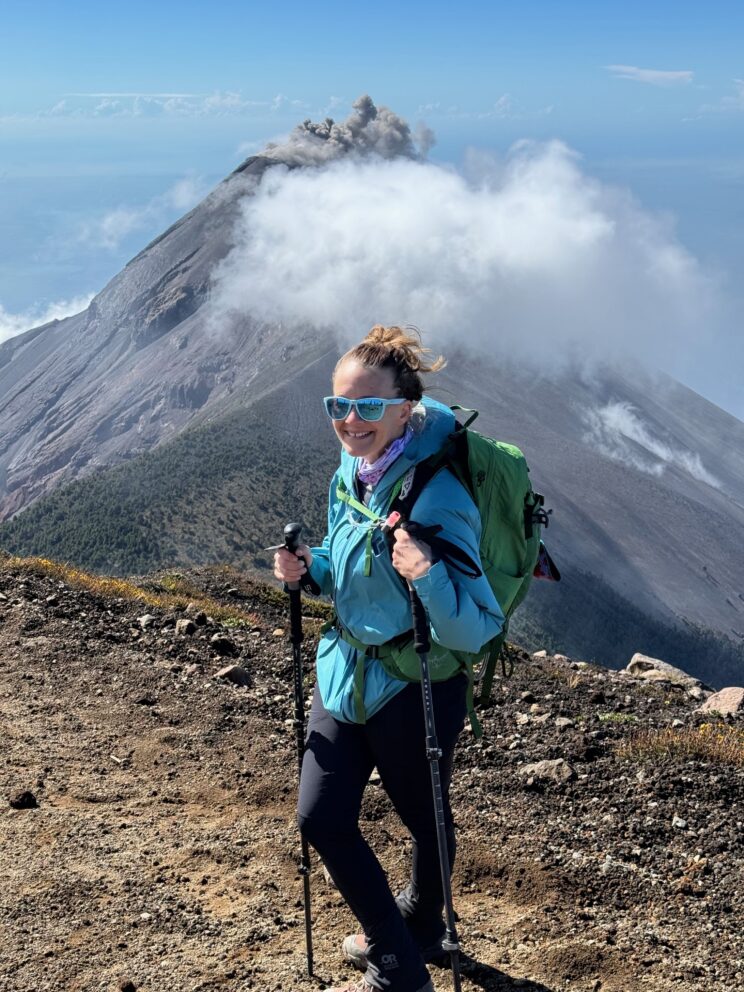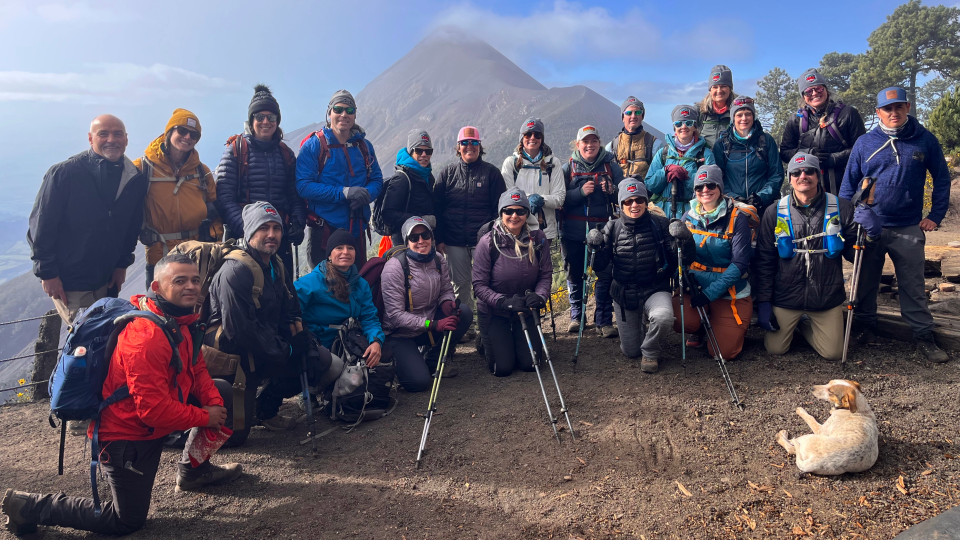After a 24-year career in the United States Air Force, being of service is second nature for Danyielle Lockwood (’16, ’20). Today, she has one healthy kidney. And thanks to her, so does the man who received her organ donation.
Her military career was full of travel, and through Embry-Riddle Worldwide, education. She began her studies at Lajes Field in the Azores. She found the classes engaging enough to finish her Bachelor of Science in Technical Management and Master of Science in Human Security and Resilience.
In addition to the Azores, she was stationed in Germany and Okinawa. She was deployed twice, to Abu Dhabi, United Arab Emirates, and to Kandahar Airfield in Afghanistan. She returned to civilian life in Fort Walton Beach, Florida.
Lockwood enjoyed seeing the world, but working with others was deeply gratifying. “I had the opportunity to help people with all kinds of issues,” she says. “I was there to help them through low points and celebrate high points.”
In 2021, she found a new opportunity to give. Her mother’s partner, Frank Haswell, needed a kidney.
“He had donated to his brother back in the ’80s, so he only had one left. When he started having issues, I felt compelled to help. I don’t even know why, but I decided: Let’s give this a try and see if we were a match. We were.”
The process was a little scary, according to Lockwood, but the University of Washington Medical Center in Seattle handling the donation was reassuring. “They told me life would be the same, and it is.”
“I found Kidney Donor Athletes (KDA) when I was searching for support groups early in the donation process. I was not an elite athlete. I’ve always been active though and did some slow half-marathons. I grew up skiing in Montana, but nothing competitive. Of course, being in the military, you run.”
Danyielle Lockwood (’16, ’20)
There was no intensive preparation, just basic healthy practices of staying hydrated and limiting protein. The December 2022 surgery, performed laparoscopically, was followed by just a day-and-a-half in the hospital. After a little rest and healing, there were no limitations on her activities. A new challenge captured her imagination, thanks to an adventure available through an advocacy group established in 2018.
“I found Kidney Donor Athletes (KDA) when I was searching for support groups early in the donation process. I was not an elite athlete. I’ve always been active though, and did some slow half-marathons. I grew up skiing in Montana, but nothing competitive. Of course, being in the military, you run.”

The KDA challenge she took on was no neighborhood fun run.
“The previous year, KDA took 20 people up Mount Kilimanjaro in the ‘One Kidney Climb,’ and they are heading back this year,” she says. “I chose a four-day hike — the Three-Volcano Challenge in Guatemala.”
The mission was as demanding as any in her military career. Hikers would summit Pacaya, Acatenango and Atitlán, totaling 12,500 vertical feet of elevation. Most of the hikes would be one day, both up and down the stratovolcanoes.
She packed up her trekking poles, hiking boots and layers of clothing to accommodate the four climactic zones she would encounter, with temperatures ranging from 30 degrees with 50 mph winds to highs in the 70s. The group started its weeklong stay in Guatemala at Antigua, then traveled to Lake Atitlán at the base of the Atitlán Volcano.
All 18 fellow hikers were kidney donors. A few were marathoners but most were recreational hikers or runners. They came from all walks of life: Law enforcement, academia, healthcare, IT, business. What they shared was a desire to send a powerful message about the quality of life they enjoyed after organ donation.
Lockwood did long walks with her dogs to prepare. However, living in the Florida Panhandle — just a few hundred feet above mean sea level – there was little she could do to prepare for hiking at elevations over 12,000 feet.
There was also no way to prepare for terrain even hotter than the sands of the Gulf she was used to. On a lava field of the Kaya Volcano, they used hot rocks as pizza ovens. Summiting the second volcano, they could look across to the Vulcán Fuego, but weather obscured their view of its eruptions every 15 minutes.
Lockwood made it up and down the first two volcanoes. The altitude was tough on the flatlander and the terrain punished her feet. “I was worried about getting more hurt and slowing the rest of the group down. So I did wind up bowing out halfway through the third volcano. But I still claim it because I was there.”
Lockwood is now looking for her next challenge but says it won’t be Kilimanjaro.
“That is a level of intensity I am absolutely not ready for.”
She’s content to know she helped KDA raise money and awareness about the experience of living donation.
“People may not want to donate because they’re scared they’re not going to be able to run or do things afterwards,” she says. “Just showing them, hey, your life is going to be exactly what you want it to be. It’s actually going to be richer after the fact, because you saved somebody’s life in the process. It just puts so much more purpose into your own life.”
